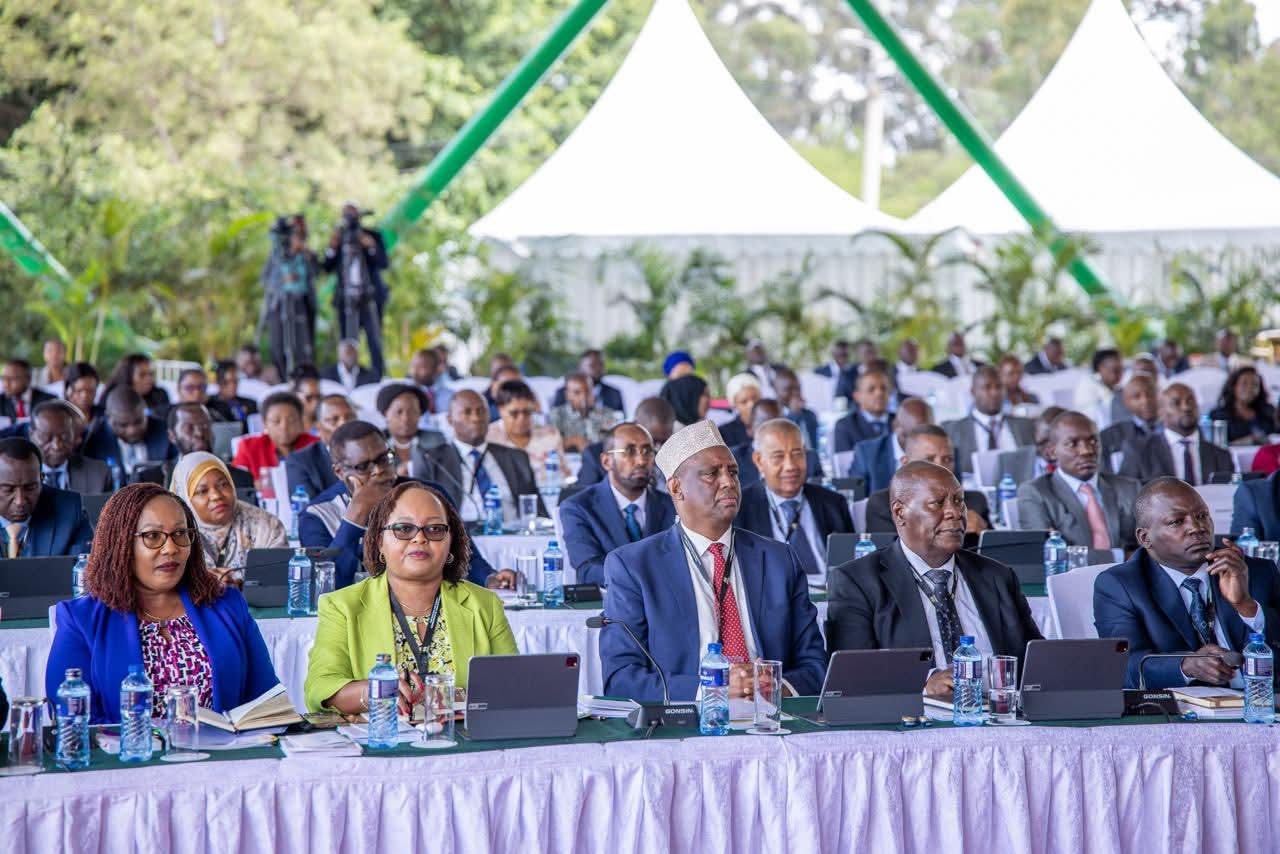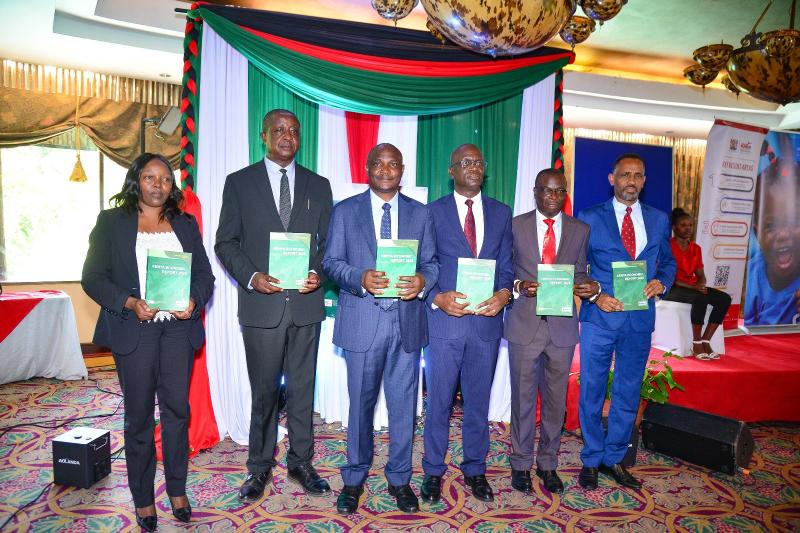Diligent young farmer who is the talk of Wajir
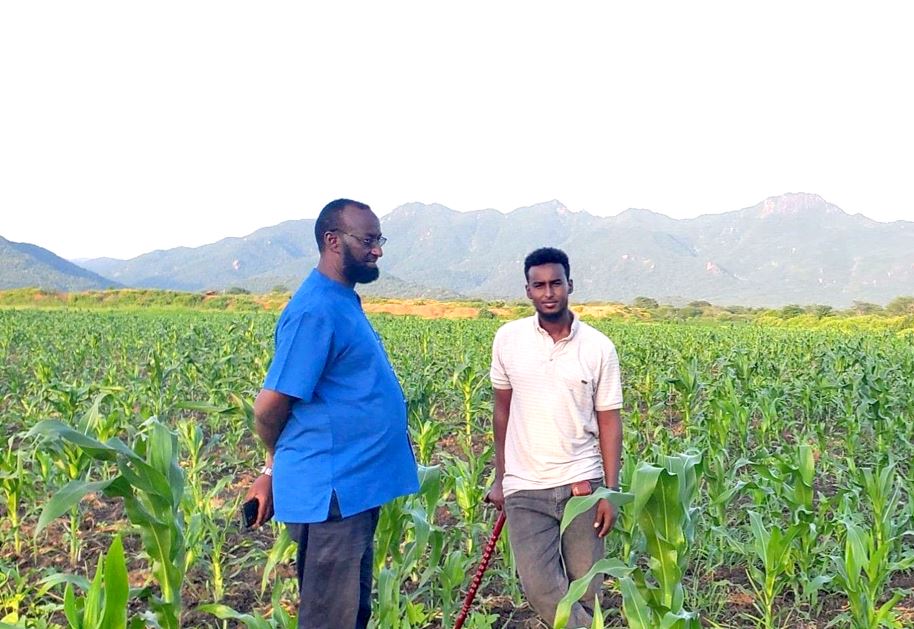
Despite a background in procurement, he embarked on an unconventional transition to farming in 2019, motivated by the pursuit of a sustainable livelihood.
Muhammad Hassan, 26, turned to farming five years ago after witnessing the devastating impact of drought on his family's primary livelihood. Driven by necessity and resilience, he sought to secure a more stable future amidst the harsh climatic challenges.
His farm, the Megan Farm, has become a source of inspiration for the local community. In Bute, Wajir County, 85 per cent of the population practises livestock keeping and nomadic pastoralism as their way of life.
More To Read
- Wajir MCAs demand answers over rising abductions after two men vanish
- Wajir police nab suspect with AK-47 rifle in ongoing crackdown on illegal firearms
- New 1MW generator boosts Wajir’s power supply, promises relief from frequent blackouts
- Stakeholders warn of increased FGM cases in Wajir during long school holiday
- Wajir’s marginalised communities demand fair representation and end to clan politics
- KDF engages Wajir leaders to bolster security along Kenya-Somalia border
Despite a background in procurement, he embarked on an unconventional transition to farming in 2019, motivated by the pursuit of a sustainable livelihood.
"Every time there is drought, we lose our primary source of income," Muhammad said. "So, I took a different leap and adopted farming as an alternative revenue generation initiative."
He began with beekeeping, a modest start that eventually paved the way for diversification into crop cultivation. Starting with traditional hives and gradually transitioning to modern apiculture techniques, Muhammad's achievements in beekeeping became the foundation for the farm's expansion.
Megan Farm specialises in horticulture, dairy, and beekeeping, showcasing Muhammad's commitment to diverse agricultural ventures. Despite his efforts, his journey has been fraught with challenges.
“Lack of tools, technology, and water storage posed significant hurdles, especially after the loss of livestock,” he said.
However, with support from organisations like the World Food Programme (WFP) and the county government, he overcame these obstacles through training and capacity building.
The family also agreed to invest in the farm by constructing a dam for rainwater harvesting.
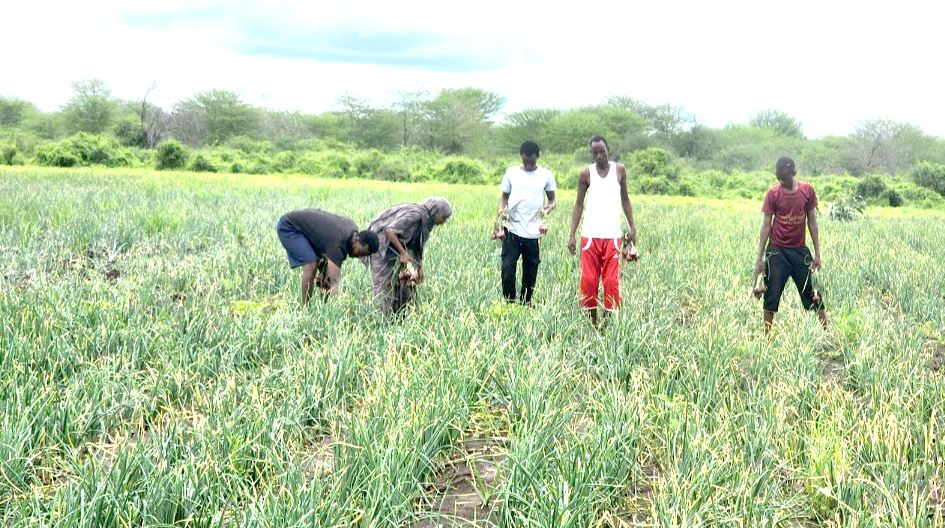 Some of the people assisting Muhammad Hassan at the Bute Farm in Wajir County. (Photo: Yunis Dekow)
Some of the people assisting Muhammad Hassan at the Bute Farm in Wajir County. (Photo: Yunis Dekow)
Muhammad's procurement skills helped him manage the farm's logistics and supply chain. He improved the farm's operational efficiency and profitability by reducing expenses, improving inventory management, and mitigating risks.
"Basic mobile applications and GPS were crucial for record-keeping and farm management," says Muhammad. "We also focused on sustainable practices like rainwater harvesting and conservation agriculture."
The shift from pastoralism to farming was met with a positive response from the community, with many now viewing farming as a viable alternative.
Muhammad's success contributes to food security efforts and inspires other youth to pursue agriculture.
"Many now view farming as a viable alternative. Megan Farm serves as a learning hub and employer for the community,” he said.
His advice to aspiring young farmers is simple yet profound, "Get your hands dirty and farm. It's profitable, it's noble, and it's doable."
According to statistics from the county government, crop farming is carried out by small-scale farmers who typically manage around three acres each.
Key crops include cereals, pulses, sesame (simsim), and various horticultural crops. Crop production is supported by infrastructure such as boreholes, shallow wells, and water pans.
Wajir County experiences two main rainfall seasons: March-April-May and October-November-December, which support rain-fed and irrigated agriculture.
Like many parts of Africa, drought in arid regions of Kenya has posed significant challenges in recent years including increased food insecurity, livestock loss, and competition for limited resources across the region.
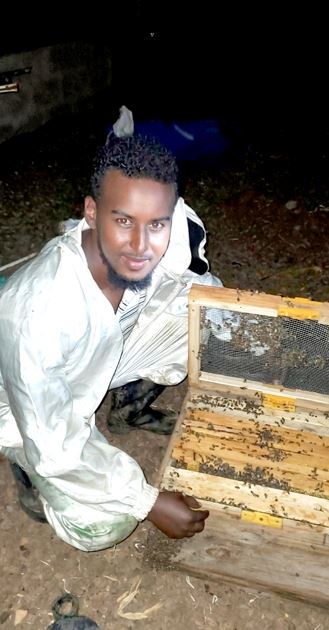 Muhammad Hassan examines one of the beehives at his farm in Wajir County. (Photo: Yunis Dekow)
Muhammad Hassan examines one of the beehives at his farm in Wajir County. (Photo: Yunis Dekow)
Wajir County Governor Ahmed Abdullahi said the county has about 11 boreholes and 20 water pans dedicated to irrigation, which supports the cultivation of high-value crops such as maize and sorghum.
He said the county government has launched initiatives to establish large-scale farms to enhance crop production and address food security.
“One such initiative involves the development of farms of approximately 5,000 acres each. These farms are expected to produce 54,000 metric tons of cereals annually, valued at over Sh300 million. The initiative also includes fodder production and value-addition investments,” said Ahmed.
The governor said investments have been made in water harvesting and irrigation infrastructure.
“We have initiated the excavation of mega water pans with a cumulative capacity of 240,000 m³ to support irrigated agriculture,” he said.
More than 120 extension agents and 7,000 farmers have been trained in various agricultural methods for capacity-building projects.
Most surplus crops in Wajir are sold unprocessed, resulting in negligible value addition. The county has two maize processing plants: the Korondille Sorghum Marketing Cooperative maize mill and Bute Millers.
Ahmed said they will strengthen cooperatives for better aggregation and marketing, with available markets including local urban centres and neighbouring towns.
The county government has pledged to increase budgetary allocations in the sector to support agricultural investments to revamp extension services, mobilise farmers into marketing cooperatives, and establish local research and training centres.
Top Stories Today
